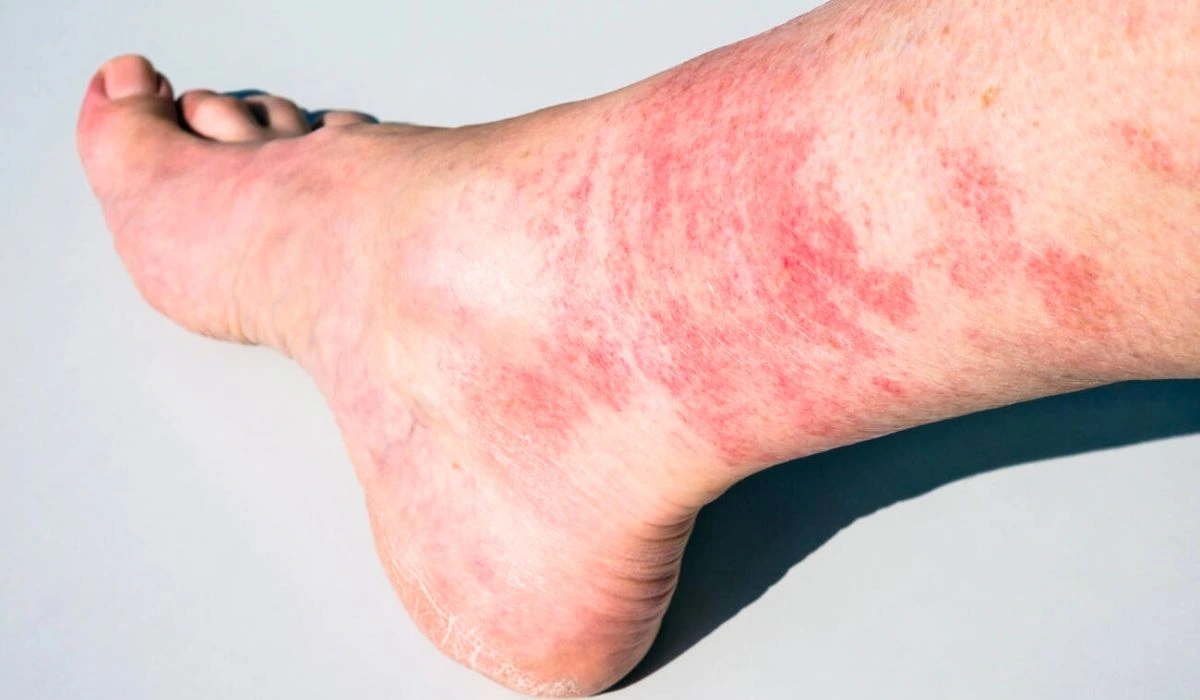Vasculitis is a group of rare conditions caused by inflammation in your blood cells. When the inflammation takes place in either the arteries, capillaries, or veins, there is reduced blood flow and damage to the tissue walls. The antibodies in your blood make sense of danger and attack molecules in the blood cells.
As a result, there is inflammation in the blood vessels, which can have various effects on the circulatory system and cause organ damage. In this blog, we are going to explore the cause, symptoms, treatment, and prognosis of vasculitis.
Causes Of Vasculitis
To this date, there has been no specific cause of vasculitis. Some research says that this condition can be hereditary, while others still have reservations about its cause. There are some similarities between some conditions that can lead to vasculitis.
Such as auto-immune diseases, infections like hepatitis B and C, blood cancers, rheumatoid arthritis, lupus, scleroderma, and reactions to other drugs.

The circulatory system of the body is a vital part of the healthy functioning of the body. If this system is disrupted, then the condition might worsen. The condition may be short-term or long-term, depending on the type of vasculitis you have. It is advised to consult with your healthcare provider when you experience the symptoms of vasculitis.
Also Check: How Do You Get An Urinary Tract Infection? Find Out The Common Ways
Symptoms Of Vasculitis
Vasculitis can affect your skin, lungs, heart, brain, kidneys, nerves, eyes, and stomach. Individuals after the age of 50 are more likely to show signs of this condition. Some common symptoms that you can see when you are suffering from vasculitis are:
- Skin rashes on your body or a heavily inflamed skin reaction
- Coughing
- Fever
- Excessive weight loss
- Fatigue
- Abdominal and stomach pain
- Bloody stools or blood in the urine
- Discoloration of your skin
- Numbness in your hands and feet
- Muscle aches
Treatment For Vasculitis
There is no cure for vasculitis, as it is a rare condition and the cause of it is still unknown. The only solutions for this condition are lifestyle changes and medication. When the antibodies are combating the molecules of blood cells, they also signal the brain that the body is sick. Which is why you feel sick and weak all the time. Below are the treatment options for vasculitis:
💠 Immunosuppressive Medications
To alleviate muscle aches and stop your immune system from fighting its own body, immunosuppressants are recommended. These medications depend on the diagnosis of the condition and the severity of the damage it can cause to your organs.
💠 Corticosteroids
Just like suppressants, these are responsible for stopping internal battles. Medications like prednisone are the first treatment to control your inflammation. These will help you overcome the flare-ups in your body effectively.
💠 Lifestyle Changes
Since diet and physical activity affect our bodies the most, it is advised to make some changes to your lifestyle to manage this condition. Eating a balanced diet, regularly exercising, sleeping soundly, and avoiding intoxication are some of the habits that you can incorporate into your routine.
💠 Anti-Inflammatory Medications
This medication is not advised for everyone; your healthcare provider needs to check your reports before prescribing them. The goal of this medication is to reduce pain and stop the infection-fighting activities in your body. There is a possibility of increased bleeding from this medication.
💠 ACE Inhibitors
Angiotensin-converting enzyme inhibitors are medications that reduce your blood pressure. It can help your body manage blood pressure and help with the blockage of blood in the affected area.
Read More: Best Treatment For Tetanus Infection: Prevent Complications
Prognosis Of Vasculitis
This prognosis of vasculitis is widely spread and has different aspects of damaging your body. Some are severe and some are mild, depending on the type. Early detection of this condition can lead to acute symptoms, which can be recovered in a week or a month. But when the condition is found to be in a critical state, there is a high probability that it will have chronic symptoms that are to be lived with.
The survival rate has improved over the past couple of years, and with care and support, there is hope for managing the condition. Doctors recommend monitoring your health when you are on medication and seeing the progress you are making. There is no cure yet, but there is hope to fight against it, so take good care of yourself.